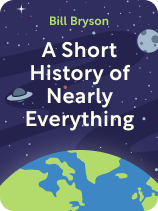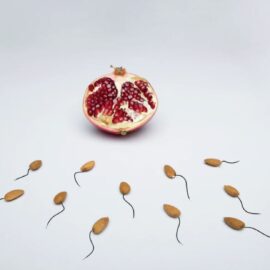

This article is an excerpt from the Shortform book guide to "A Short History of Nearly Everything" by Bill Bryson. Shortform has the world's best summaries and analyses of books you should be reading.
Like this article? Sign up for a free trial here.
How did Darwinian theory come to the fore? How is Intelligent Design different from creationism?
In A Short History of Nearly Everything, Bill Bryson offers up an accessible guide to our cosmological, geological, and biological history. He discusses the theory that Charles Darwin honed and popularized, which is best understood in the context of the competing hypothesis of Intelligent Design.
Keep reading for a brief discussion of Darwinian evolution vs. Intelligent Design.
Darwinian Evolution vs. Intelligent Design
While we talk today in terms of Darwinian evolution vs. Intelligent Design, it’s important to understand that the underlying premise of each predates these terms. Let’s take a look at each concept and their historical context.
Darwinian Evolution
Bryson asserts that, while Charles Darwin is often credited with originating the idea that species evolve from one another through random variation and natural selection, the concept was already commonplace in Darwin’s day. Fourteen years before Darwin published his theory of evolution in On the Origin of Species, Robert Chambers anonymously published a book arguing that humans shared a common ancestor with other primates.
What Darwin did was present a more academically rigorous case for evolution than some of his predecessors and accept credit for it. Others were hesitant to take credit for the idea because it was so controversial.
(Shortform note: About 40 years before Chambers’ book, Jean Lamarck proposed a theory of biological evolution. Lamarck’s theory received so much criticism that it ended his career in science. This illustrates why others like Chambers were hesitant to ascribe their names to evolutionary theories, and also how much culture changed in the first half of the 19th century: By Darwin’s time, even though evolution was still highly controversial, enough people were open to his ideas that he could receive credit for them instead of being ostracized by the scientific community.)
Bryson explains that some of the original objections against Darwin’s theory of evolution have since been put to rest by new discoveries. For example, some people challenged the idea that animals could pass on beneficial traits to their offspring, but the development of genetic science showed how this was possible.
Other controversies continue to this day, such as William Paley’s “watchmaker” argument. Paley contended that the intricate mechanisms of living organisms imply that they were created by an intelligent being, just as the existence of a mechanical pocket watch implied the existence of a watchmaker.
Intelligent Design
As Bryson points out, the debate about natural selection was ongoing even before Darwin published On the Origin of Species, and it continues to the present day. While Darwin’s theory of evolution remains the more widely accepted position among scientists, some scientific discoveries have arguably strengthened Paley’s theory of “intelligent design.”
It’s important to note three things about today’s concept of Intelligent Design. First, it’s a scientific hypothesis based on the same method of reasoning that Darwin used—inference to the best explanation. Second, because it’s based on science and not scripture, it isn’t the same as creationism, which is theology rather than science. Third, Intelligent Design doesn’t necessarily seek to challenge two aspects of Darwinism: change over time and common ancestry (although some findings might refute one or both of these ideas). Intelligent Design primarily aims to challenge the notion of natural selection as the mechanism by which species come to be.
In Paley’s time, some argued that his watchmaker analogy was invalid because living organisms and their organs were quite different from watches or other man-made machines. But now scientists have identified nano-scale motors, valves, and other mechanisms within cells that are both functionally and mechanically similar to manmade devices. So Paley’s analogy turned out to be accurate after all, regardless of whether or not you accept his conclusion.
Moreover, many of these cellular mechanisms exhibit “irreducible complexity,” meaning that they are made up of many components, each of which is crucial for the mechanism to work. Proponents of Intelligent Design argue that these irreducibly complex mechanisms disprove the theory of evolution because they couldn’t have evolved from simpler mechanisms: Take away any part of the mechanism and it doesn’t work at all, so natural selection wouldn’t have selected for it.
However, there is debate over whether or not certain cellular structures truly exhibit irreducible complexity. Critics argue that simpler structures might have served other useful functions and thus evolved into their current form through cellular repurposing of increasingly complex molecular machinery.
Proponents of Intelligent Design also argue that it provides a better explanation for the origin of life. Scientists have yet to identify a natural process that assembled the first life forms. But, if they were assembled by a superintelligent creator, then a natural assembly process isn’t required. Proponents of Intelligent Design believe that the genetic language shared by all modern life forms indicates that they all share the same designer.

———End of Preview———
Like what you just read? Read the rest of the world's best book summary and analysis of Bill Bryson's "A Short History of Nearly Everything" at Shortform.
Here's what you'll find in our full A Short History of Nearly Everything summary:
- An accessible overview of the natural sciences
- A full history of the universe, Earth, and life as we know it
- A look at the unknowns and controversies that still exist in the sciences






